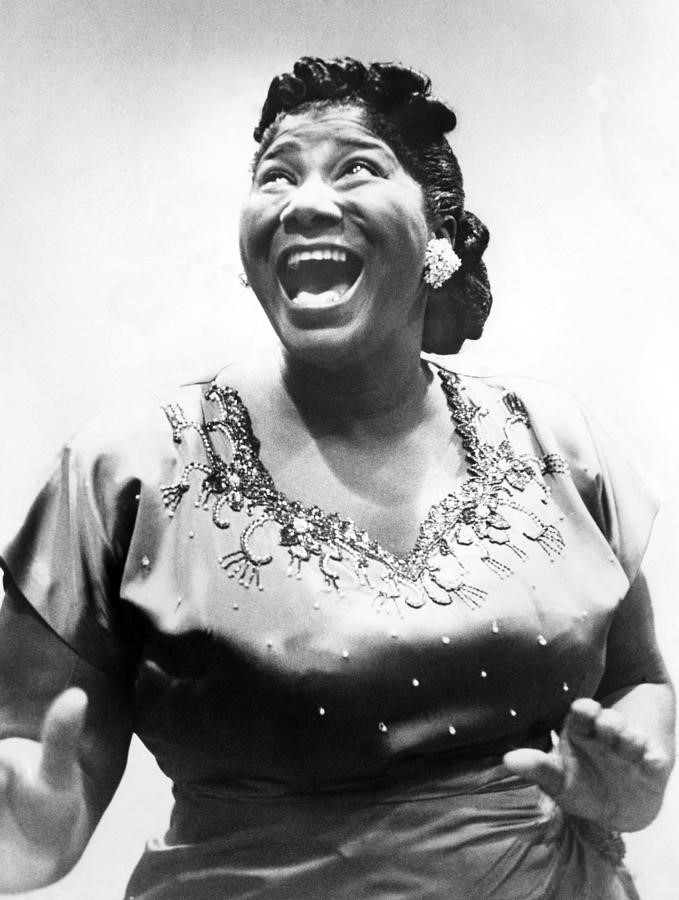
Throughout the 1950s Mahalia Jackson, the Queen of Gospel, sang to packed-out church sanctuaries and public auditoriums.
Numerous agents and producers beckoned her to do what is now called crossing over: She ought to go secular. She could be big. She could become the most powerful musical presence in America.
She could make a fortune.
But Jackson answered only to God. “I sing God’s music because it makes me feel free,” she once said. She also cherished the hope that her music could “break down some of the hate and fear that divide white and black people in this country.”
Even America’s most esteemed musicians had a hard time understanding her mission.
Mahalia was invited to be a special performer at an academic symposium on jazz on August 26, 1951, in Stockbridge, Massachusetts. According to historian Thomas Dyja, the event began with a formal lecture on the roots of African-American music. The professor then offered a technical discussion of scales and rhythms.
Jackson was perplexed. What did this have to do with singing for the Lord? Mahalia did not approach music cerebrally, but with the heart. She couldn’t even read sheet music.
The professors and professionals invited her to sing. Right from the start, however, something was wrong.
The faces in the room were 100% white. That was strange enough. But Mahalia noticed that no toes were tapping and no heads were moving. She was looking at the Dream Team of American serious music in the middle of the 20th century. Leonard Bernstein and Aaron Copland were both in the audience.
But not only could these white men not jump. They couldn’t even clap.
Jackson stopped. Trying to communicate the essence and joy of Gospel music, she gave a lecture of her own. It might have been called Clapping 101. “No, no,” she said, “you’ve got to clap on the offbeat, like this, see?” She then resumed singing the Gospel classic Didn’t It Rain.
And simply wrecked the place.
The clapping that day may have been Not Ready for Prime Time, but Mahalia communicated more in a few minutes about the soul of “God’s music” than a whole semester of lectures.
Did she make the right choice concerning her career?
During the March on Washington for Jobs and Freedom in 1963, she stood on the steps of the Lincoln Memorial and sang, I Been ‘Buked and I Been Scorned. Then she stepped aside to let Martin Luther King, Jr., make some remarks. In mid-speech, King suddenly veered from his prepared text. “I have a dream,” he began. You can still hear Jackson’s strong voice during the pause that follows: “Tell them about the dream, Martin!”
Mahalia Jackson, until her final concert, sang about the dream of racial reconciliation.
We can do the same.
Your “singing” may turn out to be writing, speaking, organizing, accounting, or any one of a number of gifts that can make a redemptive difference in the world.
Whatever gift you bring, God’s command is clear: “Make a joyful noise unto the Lord” (Psalm 100:1).
And be sure to clap on the offbeat.
